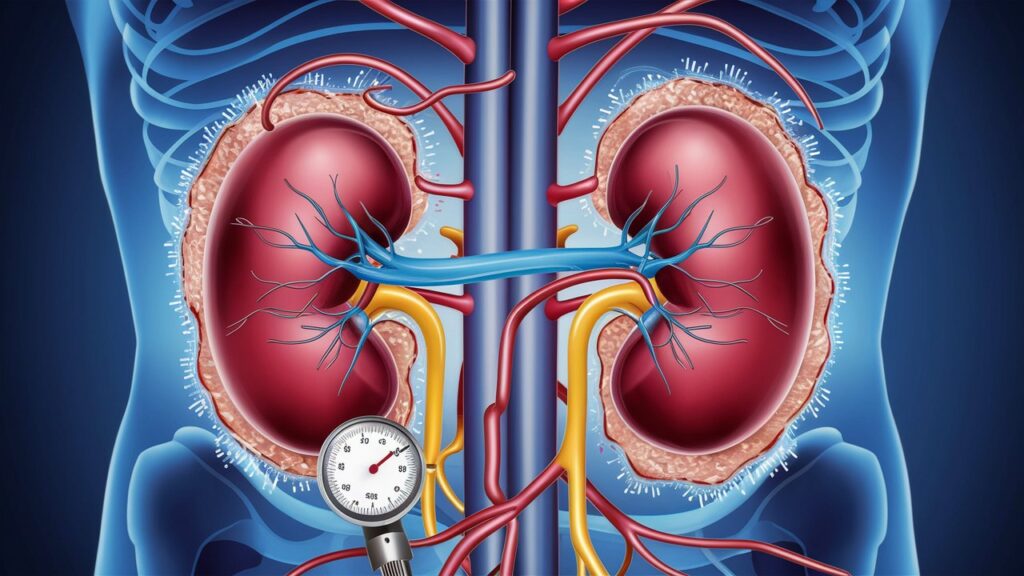
Our kidneys are often taken for granted. They are tucked away in the lower back. These two bean-shaped organs do a vital but silent job. They remove surplus fluid and waste from your blood. They are crucial for overall health. They regulate blood pressure and keep your body in balance.
Understanding the Powerhouse: What Your Kidneys Do
Your kidneys are like the ultimate purification system. Here’s a glimpse into their remarkable functions:
- Waste Removal: They act as a natural filter. They remove waste and toxins made by your body’s metabolism. These waste products are then eliminated through urine.
- : Kidneys ensure proper fluid balance in your body. They also control electrolytes. These Balancing Fluids and Electrolytes minerals are vital for muscle and nerve function.
- Blood Pressure Regulation: Your kidneys help regulate blood pressure. They do this by controlling the amount of fluid and electrolytes in your blood.
- Red Blood Cell Production: They make a hormone called erythropoietin (EPO). It stimulates the bone marrow to make red blood cells, which are vital for oxygen transport.
- Bone Health: Kidneys play a role in maintaining strong bones. They activate vitamin D, which helps absorb calcium.
The Silent Threat: Recognizing Signs of Kidney Problems
Unfortunately, kidney disease often gets worse silently. It has no noticeable symptoms at first. However, some warning signs can’t be ignored. Here’s what to watch out for:
- Changes in urination: You may have changes in urination. These include peeing often, especially at night, trouble peeing, and blood in the urine.
- Fatigue and weakness: Healthy kidneys help produce red blood cells. Kidney problems can lead to anaemia, which causes fatigue and weakness.
- High blood pressure: Uncontrolled high blood pressure can damage the kidneys. The kidneys can also damage high blood pressure.
- Puffiness around the eyes or swelling in ankles and feet: It is a sign of fluid retention. This is caused by impaired kidneys.
- Loss of appetite or nausea and vomiting: These symptoms can happen late in kidney disease.
Early Detection is Key: Protecting Your Kidney Health
The good news is that there’s a lot you can do to protect your kidney health. Here are some key steps:
- Maintain a Healthy Weight: Being overweight or obese ups your risk of kidney disease.
- Manage Blood Pressure: High blood pressure is a top risk for kidney disease. To manage your blood pressure, collaborate with your physician.
- Eat a Healthy Diet: Focus on a balanced diet that’s low in sodium, processed foods, and added sugar. Pick lean protein sources, whole grains, fruits, and veggies.
- Stay Hydrated: Drink plenty of water. It helps your kidneys work well and flushes out waste.
- Limit Alcohol and Smoking: Excessive alcohol consumption and smoking can damage your kidneys.
- Control Diabetes: Diabetes is a major risk factor for kidney disease. It’s critical to properly control your blood sugar levels if you have diabetes.
- Don’t Overuse Pain Relievers. Over-the-counter pain relievers, if used too much, can harm your kidneys. Talk to your doctor about pain management strategies.
- Get Regular Checkups: Schedule them with your doctor. Do this if you have a family history of kidney disease or any of the risk factors above. Early detection and treatment can significantly improve outcomes.
Living a Healthy Life: Empowering Your Kidneys
By following these tips, you can greatly cut your risk of kidney disease. They will also empower your kidneys to work well. Recall that living a healthy life depends on having healthy kidneys. Taking care of these silent sentinels is an investment in your overall well-being.
